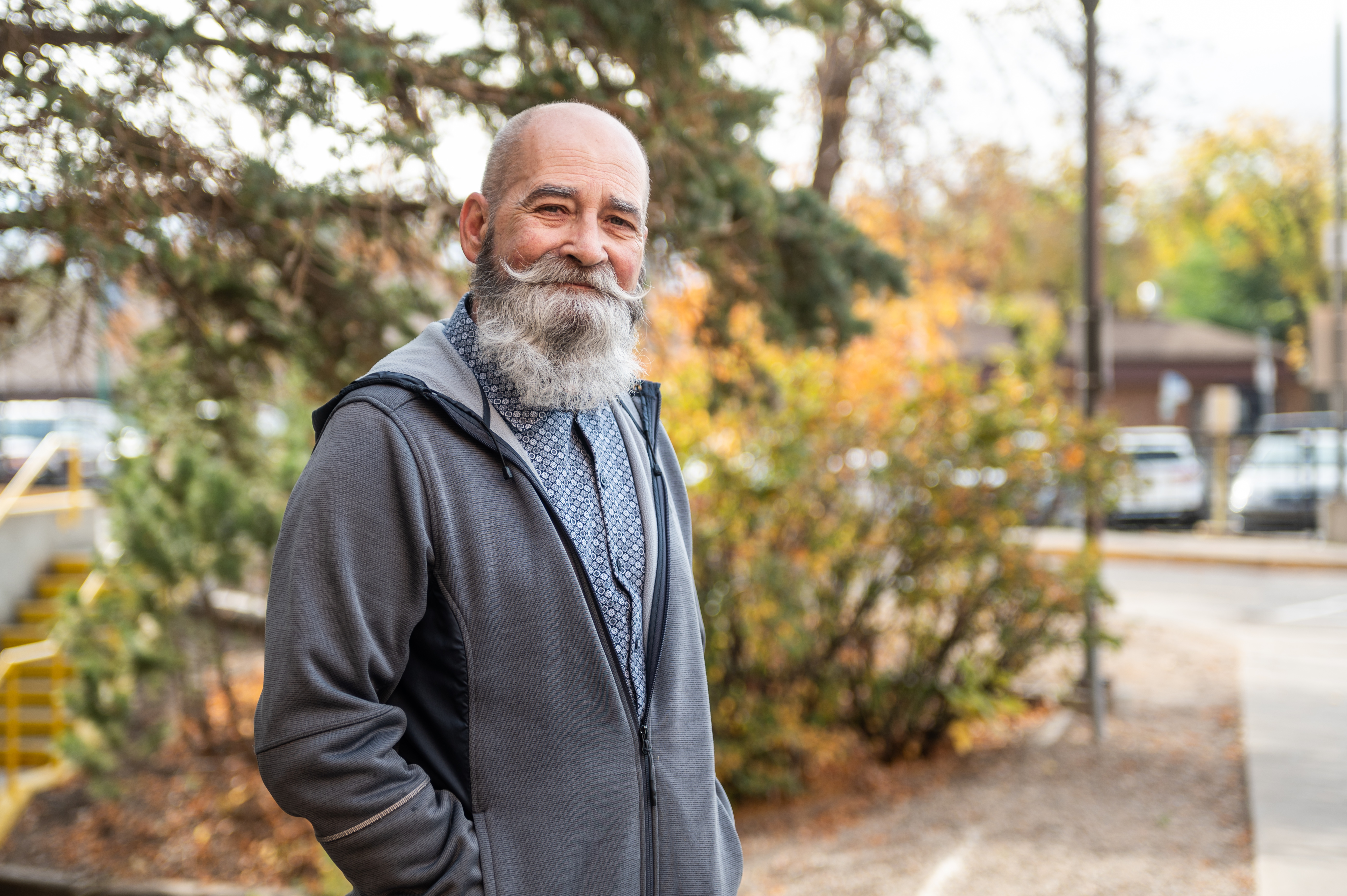
My health became my full-time job.
Keith Adrian’s kidney disease diagnosis came as a surprise and shook the foundations of his life. He was a business director for a multinational corporation, travelling all over the world on a weekly basis — everywhere from Asia to the Middle East, and extensively in the U.S. and Canada, too. Keith first found out he had problems with his kidneys when he was going to the doctor about an unrelated issue with his knee. His doctor ran a test and discovered his kidneys were functioning at 22 percent.
“I wouldn’t have known that I was at 22 percent function,” he said. “I was just a regular guy.”
As an adult-onset Type 1 diabetic, he was at a higher risk of kidney disease, and believes early screening would have made a difference in his case. His work schedule and lifestyle left no room for healing, and in 2017, he retired at the advice of his doctor, Dr. Joanne Kappel.
He’d gone from being in a senior position at a large, successful company to suddenly being retired and told to focus on his health.
“I didn't know what to do,” he said. “To have this bring me to my knees was the most frightening thing that I've gone through.”
He made lifestyle adjustments to try to slow the progress, but it didn’t work. Through consultations with experts like Dr. Kappel, he said it was clear that peritoneal dialysis was the best option for him.
“That really eliminated anxiety for me, like, ‘Oh, I can do this at home. I'm in charge. I can do this all by myself’. Those are all good things for me.”
While it was the right choice for him, peritoneal dialysis still wasn’t easy — he needed to order and receive the medical supplies and dispose of all the packaging, and he needed to stick close to home to make sure he was getting his treatments done. He also had to hook up to the machine by 10 PM, and he’d never gone to bed that early before.
He joined the transplant program, and his wife was tested as a donor. When a health issue prevented her from being an eligible match, Keith’s eldest son stepped up to the challenge and was a successful match with his father.
Keith received his transplant in August 2018, and it wasn’t until after he’d recovered from the surgery that he realized how poor his health had been before the kidney disease was discovered.
“As your health improves, you discover that you weren't a full functioning, normal adult at 22 per cent,” he said. “You only discovered that later, when you're feeling better. … It's a long road of declining health and you adapt.”
Today, Keith lives in Saskatoon, though he spent years in Dalmeny raising his children with his wife of 32 years. They have a blended family, both with two children from a previous marriage, and five grandchildren. All of their children live nearby, making for big family gatherings. He’s enjoying his retired life now, making wine as a hobby alongside fishing and golfing.
His health journey and early retirement at 59 has also led him to volunteer — first at St. Paul’s Hospital on the Peritoneal Dialysis Unit, then with the Patient Family Partners program. Currently, he’s on the steering committee for kidney health in the province.
In terms of his medical care, he felt completely supported and guided throughout his journey, but he would like to see more done to support kidney health patients’ mental health needs.
“I found that our medical staff was excellent at fixing me physically, and the people that I got to work with were fantastic. But I was a mess in my head, and I didn't realize that I was a mess.”
He has learned to be more empathetic and understanding of what other people might be going through in their own lives. “I have this excellent family, I have a good support system — all the boxes were checked on where I was at with my disease, but some of these people aren't in that same boat,” he said.
Since his experience, Keith has spoken to medical students and at the Kidney Foundation about why addressing mental health is so important to people living with kidney disease. When there’s a health trauma, there’s a potential for mental health issues to develop, and Keith is an advocate for kidney health programming that includes care for emotional and mental well-being.


